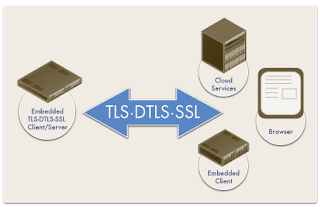VPN Security
Today,
we can see powerful supercomputers available to the science to
predict disasters, improve the health and life of people, etc, like
the newly Lusitania
II,
but we can also know that these supercomputers could be used to find
out vulnerabilities and flaws in protocols and algorithms that would
allow us to do malicious actions against the society.
Last
week I have been working with VPN in a deeper way and while I was
reading, configuring and testing different kind of VPNs like IPSec,
SSL, GRE, L2TP/PPTP
or MPLS, I was thinking how easy
it
would be to crack and sniff
these VPNs in a passive way if
we use supercomputers, because all
of us know that one way to decrypt messages is by bruteforce attacks
that it could be done by powerful
supercomputers.
In
fact, the black
budget of the EEUU for spy agencies,
like NSA and CIA, seems to have developed in the Utah
Data Center
a system called
TURMOIL
which uses a vulnerability
in the Diffie Hellman cryptographic protocol to intercept and sniff
VPN traffic,
and
SSH and HTTPS sessions too,
in
a passive way.
This
could be done because most servers and applications use the same
prime number to exchange the key in the Diffie Hellman protocol to
encrypt data and if this prime number can be cracked then we can
intercept, analyze and sniff
a huge amount of traffic. Do
you realize how much worth to crack this prime number? For this
reason, we should use Diffie Hellman group 14 with 2048 bit length as
a mandatory recommendation, or stronger.
On the other hand,
there are another weakness in the VPN IPsec protocol which is in the
IKE Aggressive Mode's Phase 1 because Aggressive
Mode exchanges pre-shared keys in clear-text by default for
VPN authentication. For this reason, it is important to configure
properly our VPN and use Main Mode instead.
Last, but not less
important, is to choose a strong encryption algorithm to encrypt
data. Although 3DES
isn't still vulnerable or cracked, it is highly recommended
to use the AES algorithm, and never use DES because it is do
vulnerable.












Commentaires
Enregistrer un commentaire